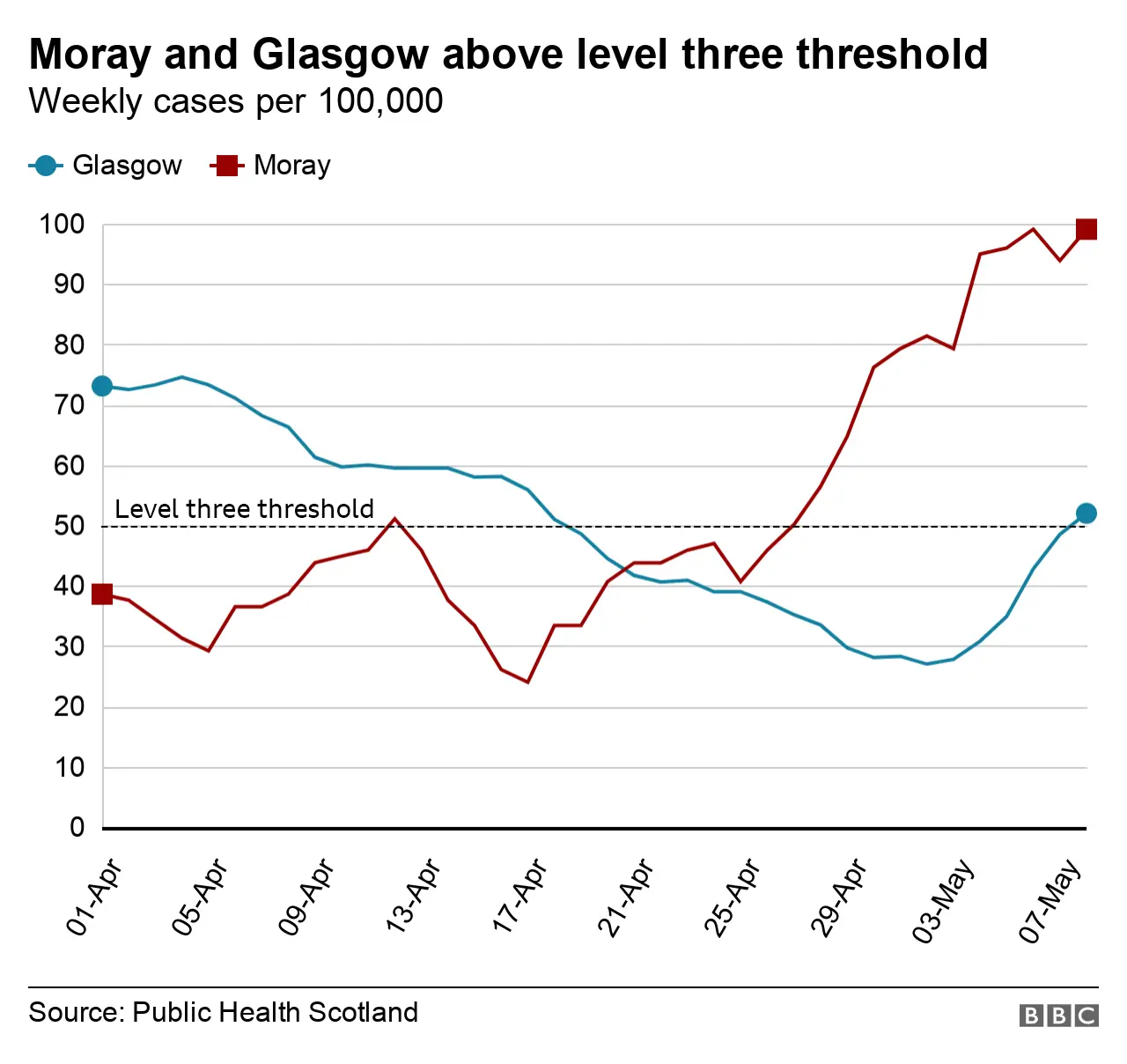Covid in Scotland: Easing of restrictions not a 'free-for-all', says Leitch
 Getty Images
Getty ImagesThe easing of Covid restrictions from Monday should not be thought of as a "free-for-all", Scotland's national clinical director has warned.
Prof Jason Leitch said people should take advantage of the new easing, but warned against hugging "random strangers".
Most of Scotland is due to move down at least one level from 17 May, with the probable exception of Moray.
Infection rates in the area are more than four times the Scotland-wide rate.
Public Health Scotland (PHS) figures show that Moray recorded a rate of 99.1 cases per 100,000 people on 8 May, with indications this figure may rise still further.
The Scotland-wide rate on the same day was 22.8 cases.
Prof Leitch said this coming Monday's relaxation in restrictions was "terrific news" and was thanks to the people of Scotland obeying the rules that have been in place for several months.
But he told BBC Radio's Good Morning Scotland programme the country was not "out of the woods", with the virus still spreading rapidly in many parts of the globe.
"People shouldn't think this is a free-for-all 'all bets are off, we're all back to normal'," he said.
"They should absolutely take advantage of managing to see family, of going to the businesses that have been closed for so long, but do that cautiously. Do it within the safety measures that still exist."
He cautioned that the relaxation of rules around physical contact were more about "hugging your parents when they arrive at your house".
"I'm not suggesting you hug for 20 minutes or you hug random strangers in the street at the end of a night out," he said.
Moray decision due
Scotland recorded 238 new cases of Covid-19 on Tuesday, with 1.7% of tests being positive.
No Covid deaths within 28 days of a positive test were registered for the fifth day in a row.
Prof Leitch said a final decision on Moray would be taken later this week, but added it was unlikely the area would move to level two.
The Scottish government's upper threshold for level two is 50 cases per 100,000 and PHS data shows that Glasgow is now also above this bar, with a rate of 51.9.
Public health officials also take other factors into account, such as the pressure on local health services, when deciding what level a local authority should be placed.

Prof Rowland Kao, the chair of veterinary epidemiology and data science at the University of Edinburgh, also said people should go "slow and steady" when it came to new freedoms around physical contact.
"We need to be aware and keep in mind that while the numbers of infections are low, things can change quite rapidly - especially as we allow more and more forms of contact," he said.
"Those changes mean that transmission rates could be higher if people get infected. They could cause mini-outbreaks and mini-outbreaks could lead to additional restrictions which is what we don't want to have."

